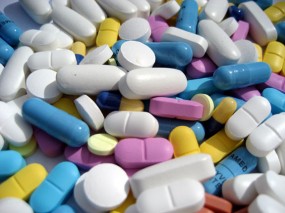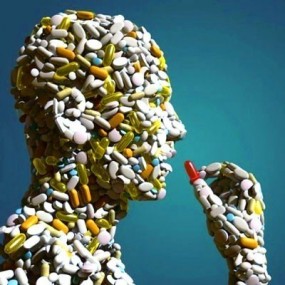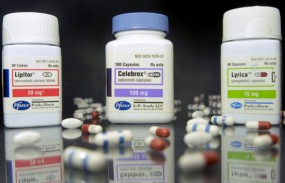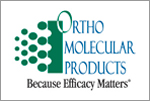- Fitness (19)
- News & Reviews (25)
- Nutrition (20)
- Science (10)
- Supplements (6)
- Technologies (8)
- The Arts (9)
Warnings About Statins Grow Louder
January 27th, 2011
 There are many alternatives to statins. Please call and make an appointment if you’d like to discuss your options! — Cathie
There are many alternatives to statins. Please call and make an appointment if you’d like to discuss your options! — CathieBy Tom Jacobs: Statins have been marketed — and widely described in the media — as wonder drugs which help ensure heart health by lowering cholesterol. But as we reported in 2009 (“Cholesterol Contrarians Question Cult of Statins”), an outspoken group of researchers warn their use is too widespread, and their potential dangers underestimated.A study just published in the journal The Cochrane Collaboration suggests their doubts are valid.
Researchers from the London School of Hygiene & Tropical Medicine reviewed previous studies on the risks and benefits of statins for people at low risk of heart disease and found many of the studies were deeply flawed.
The researchers conclude, in a note to physicians: “Caution should be taken in prescribing statins for primary prevention among people at low cardiovascular risk.”
Independent researchers in the U.S. and Canada have found links between statin use and a variety of cognitive disorders ranging from depression to dementia.
Filed under News & Reviews | Comments Off on Warnings About Statins Grow Louder
Cycle of Symptoms
September 3rd, 2010
 By Carolyn Dean MD, ND: I’ve observed a disturbing trend among some clients who consult with me. I’ve even heard similar stories from cab drivers and customer-service people who are being treated for heart disease with no relief. I call it “domino drug therapy.” Here’s the scenario:
By Carolyn Dean MD, ND: I’ve observed a disturbing trend among some clients who consult with me. I’ve even heard similar stories from cab drivers and customer-service people who are being treated for heart disease with no relief. I call it “domino drug therapy.” Here’s the scenario:
1. You experience a tremendously stressful event or series of events in your life. Here’s a partial list: surgery, a death in the family, divorce, job loss, sickness of a child, foreclosure, hospitalization or even running a marathon!
2. As a result, you experience headaches, insomnia, achiness in your body and exhaustion.
3. You visit your doctor for reassurance that you don’t have something wrong. But you’re nervous on top of your stress so your blood pressure is elevated. It’s called “the white coat syndrome.”
4. Your HMO doctor is an hour behind schedule and doesn’t have time to ask about your stress levels or find out that you haven’t slept well or eaten a decent meal in three weeks.
Filed under News & Reviews | Comments Off on Cycle of SymptomsPre-Reversing Alzheimer’s
August 26th, 2010
 By Jean Carper, Author: ‘100 Simple Things You Can Do to Prevent Alzheimer’s and Age-Related Memory Loss‘
By Jean Carper, Author: ‘100 Simple Things You Can Do to Prevent Alzheimer’s and Age-Related Memory Loss‘
“I have discovered a large contingent of Alzheimer’s researchers who are extremely positive about prevention and not counting on an elusive drug to stymie the growing Alzheimer’s epidemic of aging baby boomers.(…) There is a plethora of upbeat dialogue in the scientific community that does not grab headlines because it’s not about big money and a magic cure. It’s primarily about what people can do to change their own trajectory toward Alzheimer’s.
Contrast the recent disturbing headlines in the New York Times about Alzheimer’s drugs and diagnosis with the June, 2010 issue of the Journal of Alzheimer’s Disease. It is a special issue devoted to finding ways to prevent Alzheimer’s. [In it[ Dr. Jack de la Torre boldly asserts that (…) “Alzheimer’s is incurable, but it is preventable,” he says. “We need to identify and lower Alzheimer’s risk factors in people when they are still cognitively normal and long before irreversible symptoms appear.”
Filed under Science | Comments Off on Pre-Reversing Alzheimer’sThe Potentially Adverse Effects of Prescription Drugs
August 20th, 2010
 “Discovering dangers of prescription drugs after they have been marketed to the medical community and public is common. Generally, 51% of FDA-approved drugs have serious adverse effects not detected prior to approval.(1) Each year prescription drugs injure 1.5 million people so severely they require hospitalization. In addition, prescription drugs cause 100,000 deaths annually.(2) With these numbers, how can the public be protected from dangerous drugs?
“Discovering dangers of prescription drugs after they have been marketed to the medical community and public is common. Generally, 51% of FDA-approved drugs have serious adverse effects not detected prior to approval.(1) Each year prescription drugs injure 1.5 million people so severely they require hospitalization. In addition, prescription drugs cause 100,000 deaths annually.(2) With these numbers, how can the public be protected from dangerous drugs?
A recent study in JAMA examined the incidence of serious and fatal adverse drug reactions (ADR) in hospital patients. An ADR is any harmful, unintended, or undesired effect of a drug. This definition does not include drug abuse nor intentional or accidental drug overdose.(2) The results of this study were conclusive: the rate of severe and deadly adverse drug reactions in U.S. hospitals was found to be extremely high—high enough that ADRs ranked fourth, after heart disease, cancer, and stroke, as a leading cause of death in the U.S.(2)
Filed under News & Reviews | Comments Off on The Potentially Adverse Effects of Prescription Drugs



